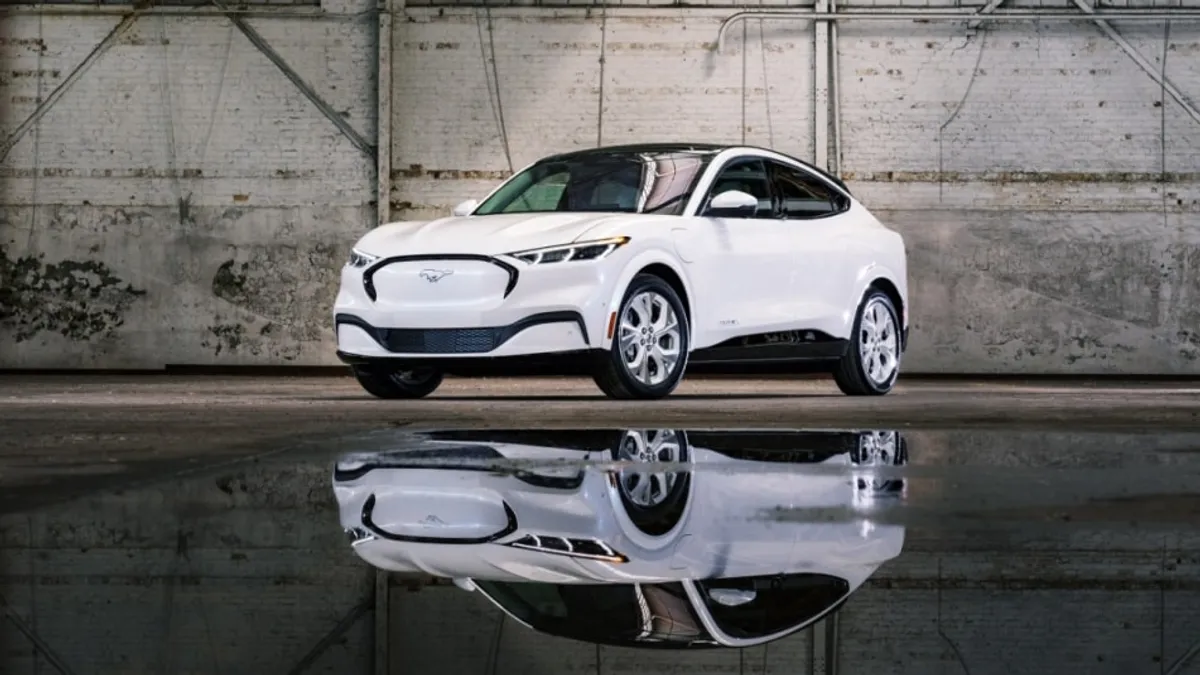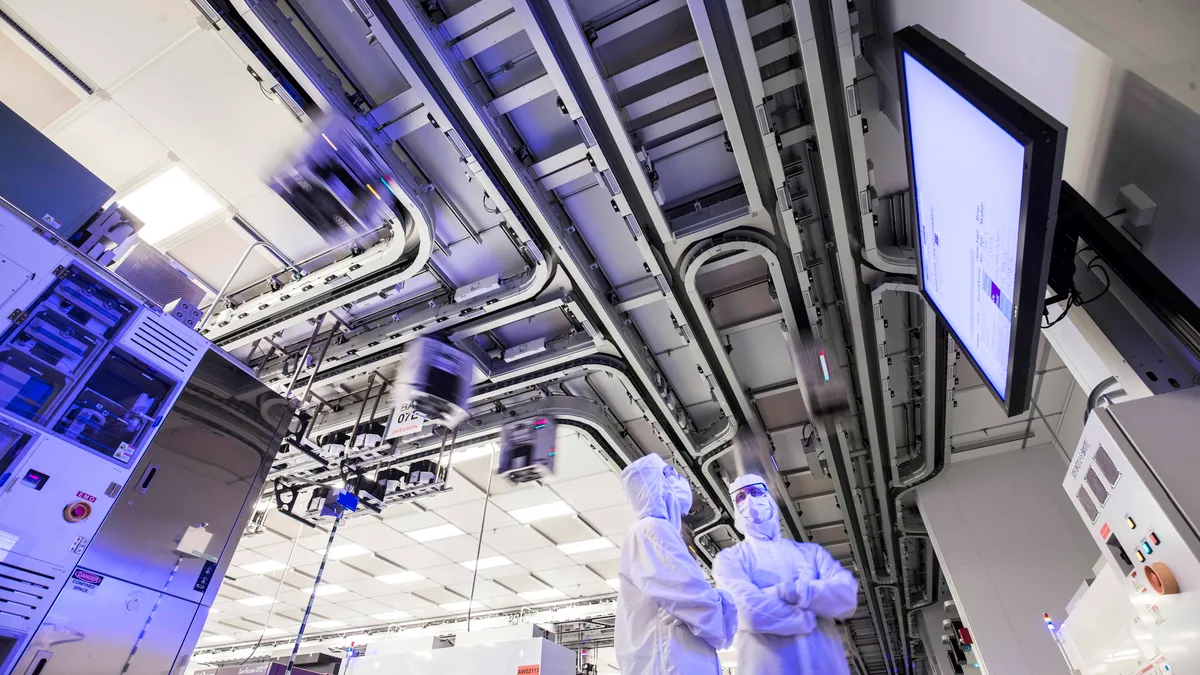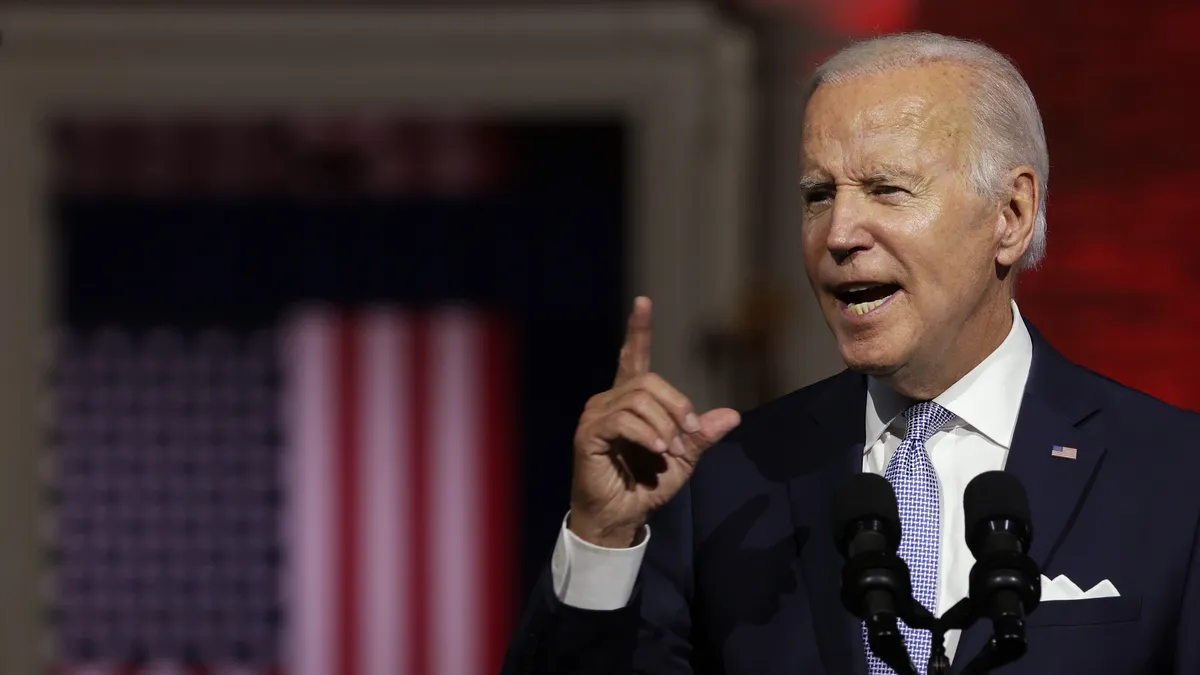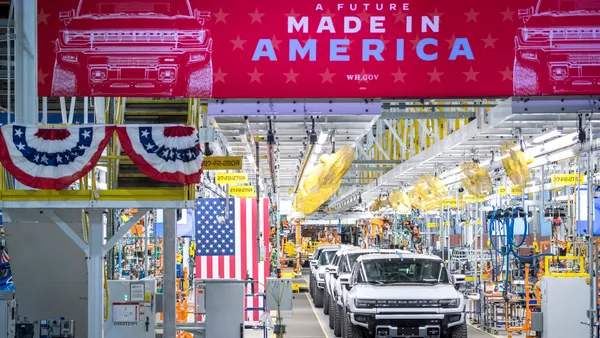Dive Brief:
- Ford is investing in an Indonesia-based nickel facility in a strategy to secure more critical minerals needed to produce electric vehicle batteries.
- The automaker is taking a stake in the Pomalaa Block HPAL Project alongside two other companies — PT Vale Indonesia Tbk and China-based Zhejiang Huayou Cobalt Co., according to an announcement from Ford. /li>
- Early site preparations are currently underway, with plans to open the facility in 2026.
Dive Insight:
The plant is expected to produce up to 120,000 tons per year of a lower cost nickel called mixed hydroxide precipitate, a piece of Ford's larger plan to ultimately bring down the cost of its EV batteries.
"This framework gives Ford direct control to source the nickel we need – in one of the industry’s lowest-cost ways – and allows us to ensure the nickel is mined in line with our company’s sustainability targets, setting the right ESG standards as we scale,” Lisa Drake, vice president for Ford Model e EV industrialization, said in a statement.
The automaker is also in the midst of signing a separate supplier agreement with Zhejiang Huayou Cobalt Co. for cathode materials needed to produce lithium-ion batteries, according to the release.
Ford has spent the past year working to secure continued access to the host of minerals needed for EVs and batteries.
Last summer, the automaker signed a spate of supplier agreements in Asia, South America and North America for access to graphite, cobalt and nickel.
Time is of the essence for Ford. The company is pushing to reach a production rate of 600,000 EVs this year, followed by more than 2 million by the end of 2026. Finally, the automaker aims to make half of its global vehicle sales electric by 2030.
Ford President and CEO Jim Farley assured investors in a February earnings call that the company will have secured 100% of the raw materials it needs to reach the 2 million run rate by the end of this year.
"Now critical to our plan is securing the necessary raw materials for these batteries to get to that 2 million unit rate, especially lithium and lithium hydroxide and nickel," Farley said on the call.
Ford is also in the midst of building massive manufacturing hubs to churn out the vehicles it's promised.
In February, the company announced plans to build a $3.5 billion lithium-ion phosphate battery manufacturing facility in Marshall, Michigan. And in Stanton, Tennessee, the automaker is spending more than $5 billion to build both a battery plant and EV pickup truck manufacturing site.













